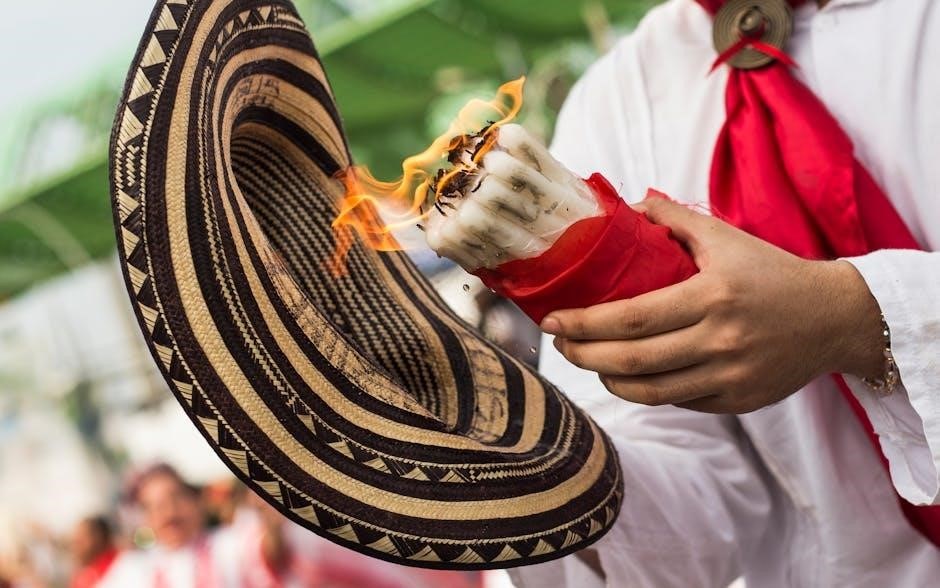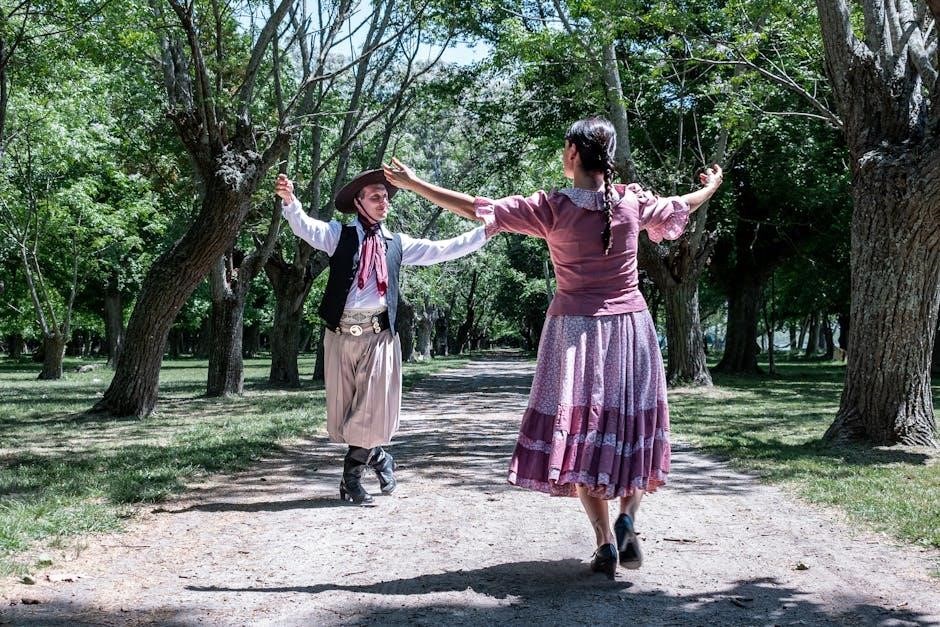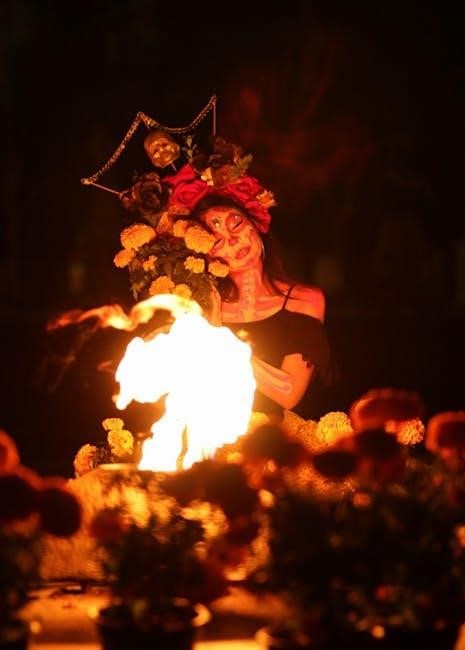Born in Blood and Fire: Latin American Voices, edited by John Charles Chasteen, is a compelling anthology that captures the region’s history through diverse voices and primary sources, offering a rich exploration of Latin America’s cultural, political, and social evolution.
Overview of the Book’s Significance
Born in Blood and Fire: Latin American Voices is a seminal anthology that provides a nuanced understanding of Latin America’s complex history and culture. Edited by John Charles Chasteen, it serves as a companion to his concise history of the region, offering primary sources that illuminate the voices and experiences of diverse individuals. The book’s significance lies in its ability to bridge the gap between academic and general audiences, making it a valuable resource for university courses and personal study. By incorporating novels, essays, and newspaper articles, it captures the region’s resilience, struggles, and transformations, offering a vivid tapestry of Latin America’s past and present.
Purpose and Scope of the Anthology
Born in Blood and Fire: Latin American Voices is designed to provide a comprehensive and engaging exploration of Latin America’s history through primary sources. Edited by John Charles Chasteen, the anthology serves as a companion to his concise history of the region, offering a wide range of materials, including novels, essays, and newspaper articles. Its purpose is to give readers firsthand insights into the cultural, social, and political dynamics that have shaped Latin America from the pre-Columbian era to the present. The anthology’s scope spans 20 countries, ensuring a broad and inclusive representation of the region’s diverse voices and experiences.
John Charles Chasteen’s Contribution to Latin American History
John Charles Chasteen, a renowned historian, has made significant contributions to the study of Latin American history through his work on Born in Blood and Fire: Latin American Voices. As both editor and translator, he compiled a diverse array of primary sources, including novels, essays, and newspaper articles, to provide a nuanced understanding of the region’s cultural and social evolution. His anthology bridges the gap between academic and general audiences, offering a rich narrative that highlights the voices of ordinary people and leaders alike. Chasteen’s work has been widely adopted in university courses, making Latin American history more accessible and engaging for students and scholars.
Historical Context of Latin America
Born in Blood and Fire: Latin American Voices explores the region’s history from pre-Columbian cultures to modern transformations, highlighting resilience, cultural richness, and the enduring spirit of its people.
The Pre-Columbian Era and Indigenous Cultures
The Pre-Columbian era in Latin America was marked by the rise of complex indigenous civilizations, such as the Aztecs, Mayas, and Incas, which flourished through advanced agriculture, architecture, and governance. These societies developed sophisticated systems of writing, astronomy, and art, leaving a lasting cultural legacy. The anthology Born in Blood and Fire: Latin American Voices highlights the diversity and richness of these cultures through primary sources, offering insights into their daily lives, beliefs, and contributions to the region’s identity. This section sets the stage for understanding the historical trajectory of Latin America before European contact.
European Contact and the Colonial Period
European contact in the late 15th century profoundly transformed Latin America, leading to the collapse of indigenous empires and the imposition of colonial rule. The arrival of Europeans brought devastating diseases, enslavement, and exploitation, drastically reducing native populations. The colonial period saw the establishment of rigid social hierarchies, with Europeans at the top and indigenous peoples at the bottom. Born in Blood and Fire: Latin American Voices includes primary sources that illuminate the violence and cultural upheaval of this era, as well as the resilience of indigenous and African communities; These accounts reveal the complex legacy of colonialism in shaping modern Latin America.

The Struggle for Independence in the 19th Century
The 19th century marked a pivotal era for Latin America as nations sought independence from Spanish and Portuguese rule. Leaders like Simón Bolívar and José de San Martín spearheaded rebellions, inspired by Enlightenment ideals and the desire for self-governance. Born in Blood and Fire: Latin American Voices features primary sources, such as speeches and documents, that highlight the region’s turbulent transition to sovereignty. These materials reveal the challenges of building new nations, including political instability and social inequality. The anthology underscores how this period laid the foundation for modern Latin America’s complex identity and ongoing struggles for justice and equality.
Modern Latin America: Challenges and Transformations
Modern Latin America faces complex challenges, including economic inequality, political instability, and social unrest. The region has undergone significant transformations, such as the rise of neoliberalism and its critiques, as well as shifting cultural identities. Born in Blood and Fire: Latin American Voices explores these dynamics through primary sources like essays and speeches, offering insights into the struggles of contemporary Latin America. The anthology highlights the resilience of its people and their ongoing quest for justice, democracy, and economic opportunity, reflecting the region’s enduring spirit of hope and transformation in the face of adversity.

Key Themes in “Born in Blood and Fire”
Born in Blood and Fire: Latin American Voices explores themes of resilience, identity, and social change, highlighting the region’s complex history of violence, hope, and transformation.
Resilience and Resistance in Latin American History
Born in Blood and Fire: Latin American Voices vividly portrays the region’s history of resilience and resistance, from indigenous uprisings to modern social movements. Through primary sources like novels, essays, and newspaper articles, the anthology captures the voices of those who endured colonial exploitation, political oppression, and economic inequality. These narratives reveal how Latin Americans have consistently fought for justice, identity, and autonomy, shaping their nations’ futures. The collection emphasizes the emotional and cultural depth of these struggles, illustrating how resilience has been a defining feature of Latin America’s collective identity.
The Role of Identity and Culture in Shaping Society
Born in Blood and Fire: Latin American Voices explores how identity and culture have profoundly shaped Latin American society. The anthology highlights the blending of indigenous, European, and African influences, creating a rich cultural tapestry. Through primary sources, it reveals how these cultural intersections have defined societal structures, informed political movements, and inspired artistic expression. The collection underscores the enduring importance of cultural identity in fostering unity and resilience, while also addressing the tensions arising from diverse heritage. This thematic focus illuminates how culture has been both a source of strength and a site of conflict in Latin America’s history.

Social and Political Change: From Colonization to Neoliberalism
Born in Blood and Fire: Latin American Voices traces the region’s transformation from colonial rule to modern neoliberalism. The anthology examines how colonial exploitation reshaped societies, fostering resistance and independence movements. It highlights the rise of nationalism and its impact on nation-building, as well as the challenges of social inequality and political instability. The collection also explores the shift toward neoliberal policies, which have influenced economic structures and social dynamics. Through primary sources, the book reveals how these changes have shaped Latin America’s identity, fostering both progress and conflict, and continues to influence its contemporary socio-political landscape.
The Impact of Violence and Conflict on National Development
Born in Blood and Fire: Latin American Voices underscores the profound impact of violence and conflict on Latin America’s national development. From colonial exploitation to independence wars and 20th-century revolutions, the region has endured cycles of turmoil. The anthology highlights how these conflicts have shaped political instability, social inequality, and economic challenges. Primary sources, such as novels and essays, reveal the human cost of violence and its lasting scars on communities. The book also explores efforts to rebuild and reconcile, offering insights into the resilience of Latin American societies amid ongoing struggles for peace and development.

Structure and Organization of the Anthology
Born in Blood and Fire: Latin American Voices is organized chronologically and thematically, blending primary sources like novels, essays, and newspaper articles with visual elements such as maps and photographs to provide a comprehensive narrative of Latin America’s history and culture.
Chronological and Thematic Arrangement of Sources
The anthology is structured chronologically, spanning from pre-Columbian times to modern Latin America, while also organizing content thematically to explore key historical and cultural themes. Primary sources, including novels, essays, and newspaper articles, are carefully selected to align with specific periods and topics, providing a cohesive narrative. Visual elements like maps and photographs further enhance the reader’s understanding of historical contexts. This dual approach allows readers to trace the evolution of Latin American societies while delving into recurring themes such as identity, resilience, and social change, making the anthology both informative and engaging for students and general readers alike.
The Use of Primary Sources: Novels, Essays, and Newspaper Articles
Born in Blood and Fire: Latin American Voices utilizes a wide array of primary sources, including novels, essays, and newspaper articles, to provide firsthand insights into the region’s history. These sources, many translated by John Charles Chasteen, offer unique perspectives on key events and cultural shifts. Novels and essays reveal the voices of intellectuals and everyday people, while newspaper articles capture the immediacy of historical moments. This diverse inclusion of primary materials creates a vivid and immersive narrative, allowing readers to engage directly with the experiences and ideas that shaped Latin America’s complex past.

Visual Elements: Maps, Photographs, and Illustrations
Born in Blood and Fire: Latin American Voices enriches its narrative with a variety of visual elements, including maps, photographs, and illustrations. These visuals provide geographical context, highlight cultural practices, and document historical events. Maps help trace the region’s transformations over time, while photographs offer glimpses into daily life and significant moments. Illustrations add depth to the text, making complex historical themes more accessible. These visual aids, integrated throughout the anthology, complement the written sources and enhance readers’ understanding of Latin America’s diverse and dynamic history.

Primary Sources and Their Significance
Born in Blood and Fire: Latin American Voices features novels, essays, and newspaper articles, offering direct insights into the region’s history. These primary sources provide firsthand perspectives from individuals who lived through key events, enriching the historical narrative with authenticity and depth.
Novels as Historical Narratives
Novels in Born in Blood and Fire: Latin American Voices serve as vivid historical narratives, capturing the human experience during pivotal moments. These works, often translated by John Charles Chasteen, provide emotional and cultural depth, making history relatable. By weaving fictional accounts with historical events, novels offer unique perspectives on societal changes, political struggles, and cultural identity. They complement other primary sources, enriching the anthology’s exploration of Latin America’s complex past. Through storytelling, novels bridge the gap between historical facts and personal experiences, creating a more immersive understanding of the region’s history and its people’s resilience and diversity.
Essays and Speeches: Voices of Leaders and Intellectuals
Essays and speeches in Born in Blood and Fire: Latin American Voices provide direct access to the thoughts and visions of leaders and intellectuals who shaped the region’s history. These documents, often translated by John Charles Chasteen, capture the political, social, and cultural ideals of their time. From independence movements to modern reforms, these writings reveal the motivations and struggles of key figures. They offer a window into the intellectual currents that defined Latin America, allowing readers to engage with the voices of those who influenced its trajectory; This section highlights the power of ideas in shaping the region’s identity and future.
Newspaper Articles: Reflections of Public Opinion and Events
Newspaper articles in Born in Blood and Fire: Latin American Voices offer vivid snapshots of public opinion and pivotal events. These primary sources capture the mood of society during key historical moments, such as independence movements, political upheavals, and social transformations. By presenting diverse perspectives, they reveal how ordinary people and elites viewed the challenges of their time. The articles also highlight the role of media in shaping narratives and influencing public discourse. This section provides a unique lens through which readers can explore the complexities of Latin America’s past and its ongoing struggles and aspirations.
Cultural and Social Insights
Born in Blood and Fire: Latin American Voices offers profound insights into the region’s cultural and social fabric, exploring identity, tradition, and the blending of indigenous, European, and African influences.
The Role of Women in Latin American History
Born in Blood and Fire: Latin American Voices highlights the pivotal role of women in shaping the region’s history, from indigenous leaders to modern activists. Primary sources reveal their contributions to cultural preservation, resistance, and social change, often overlooked in traditional narratives. Women’s voices emerge in essays, novels, and speeches, illustrating their resilience amid colonial oppression, political exclusion, and gender inequality. Their stories, marked by both struggle and triumph, underscore the enduring impact of women in Latin America’s complex historical tapestry, offering a nuanced perspective on their agency and influence across centuries.
Indigenous Perspectives and Their Historical Marginalization
Born in Blood and Fire: Latin American Voices sheds light on the often-overlooked experiences of indigenous peoples, whose cultures and traditions were profoundly disrupted by colonialism. Primary sources, such as novels and essays, reveal the resilience of indigenous communities despite centuries of marginalization. The anthology highlights their struggles against exploitation and the erasure of their identities, offering a platform for their voices to be heard. By examining these narratives, readers gain a deeper understanding of the historical injustices faced by indigenous populations and their enduring contributions to Latin America’s cultural fabric.
The Influence of African Cultures in Latin America

Born in Blood and Fire: Latin American Voices explores the profound impact of African cultures on the region, shaped by the transatlantic slave trade and the resilience of enslaved peoples. African traditions influenced music, religion, and art, blending with indigenous and European elements to create vibrant cultural expressions. The anthology highlights how African descendants shaped national identities and resisted oppression, contributing to the rich cultural tapestry of Latin America. Through primary sources, the book illuminates the enduring legacy of African cultures in the region’s history and society.

Political and Economic Developments
Born in Blood and Fire: Latin American Voices examines the region’s transformation from colonial rule to modern economic policies, highlighting struggles with inequality and the quest for stability and growth.
Colonial Exploitation and Its Legacy
Born in Blood and Fire: Latin American Voices delves into the profound impact of colonial exploitation, tracing the extraction of resources and labor that shaped the region’s economic and social structures. Primary sources, such as essays and speeches, reveal the harsh realities of exploitation and the resistance it engendered. The anthology highlights how colonial systems perpetuated inequality and laid the groundwork for long-standing disparities. By examining these historical dynamics, the book provides a nuanced understanding of how colonial legacies continue to influence contemporary Latin America’s struggles with development and social justice.
Nationalism and Its Impact on Modern States
Born in Blood and Fire: Latin American Voices explores how nationalism shaped the identity and political landscape of modern Latin American states. Through primary sources like novels and speeches, the anthology reveals how nationalist movements emerged as a response to colonial rule and foreign influence. Nationalism unified diverse populations but also often led to internal conflicts and exclusionary policies. The book highlights how these movements influenced state formation, economic policies, and social cohesion, leaving a lasting legacy that continues to shape contemporary Latin American nations and their struggles with identity and sovereignty.
Neoliberalism and Its Effects on Contemporary Latin America
Born in Blood and Fire: Latin American Voices examines the profound impact of neoliberalism on modern Latin America. This economic ideology, emphasizing free markets and privatization, reshaped the region’s political and social landscapes. The anthology highlights how neoliberal policies led to increased inequality, labor exploitation, and social unrest. Through essays, speeches, and primary sources, the book reveals the tensions between economic growth and social justice. It also explores resistance movements and alternative visions for development, offering insights into the complexities of neoliberalism’s legacy in shaping contemporary Latin America’s challenges and aspirations.

Education and Academic Use
Born in Blood and Fire: Latin American Voices is widely adopted in university courses, serving as a required text for Latin American history and culture studies. It complements its companion textbook, offering primary sources that enrich students’ understanding of the region’s complex past. The anthology is valued for its accessibility, making it an essential resource for both students and general readers seeking a deeper engagement with Latin America’s history and society.
Adoption in University Courses and Curricula
Born in Blood and Fire: Latin American Voices is widely adopted in university courses, serving as a required text for Latin American history and culture studies. It complements its companion textbook, offering primary sources that enrich students’ understanding of the region’s complex past. The anthology is valued for its accessibility, making it an essential resource for both students and general readers seeking a deeper engagement with Latin America’s history and society.
Value for Students and General Readers
Born in Blood and Fire: Latin American Voices offers immense value for students and general readers by providing firsthand insights into Latin America’s history through novels, essays, and primary sources. Its engaging narrative and diverse perspectives make it an accessible and enriching resource for understanding the region’s cultural, political, and social evolution. The anthology’s inclusion of translated works ensures a broad audience can connect with the voices shaping Latin America’s past and present, making it an invaluable tool for both academic and personal exploration.
Companion to “Born in Blood and Fire: A Concise History of Latin America”
Born in Blood and Fire: Latin American Voices serves as a complementary reader to John Charles Chasteen’s Born in Blood and Fire: A Concise History of Latin America. This anthology enriches the textbook by offering primary sources, including novels, essays, and newspaper articles, that provide original voices and perspectives. It bridges historical narratives with lived experiences, allowing readers to engage deeply with the region’s cultural and political evolution. By aligning with the textbook’s structure, the anthology enhances understanding of Latin America’s complex history, making it an essential resource for both students and general readers seeking a well-rounded education.
Reception and Reviews
Born in Blood and Fire: Latin American Voices has received widespread academic acclaim for its rich primary sources and insightful narratives, making it an essential resource for understanding Latin America’s history.
Academic and Critical Reception of the Anthology
Born in Blood and Fire: Latin American Voices has been widely praised for its comprehensive and engaging approach to Latin American history. Scholars commend its meticulous selection of primary sources, including novels, essays, and newspaper articles, which provide firsthand insights into the region’s complex past. The anthology is celebrated for its accessibility, making it an invaluable resource for both students and general readers. Its companion to Chasteen’s concise history ensures a well-rounded understanding of Latin America’s cultural, political, and social evolution. The inclusion of maps and photographs further enhances its educational value, solidifying its place as a cornerstone in Latin American studies.
Student Feedback and Engagement with the Material
Students and educators alike have praised Born in Blood and Fire: Latin American Voices for its engaging and accessible presentation of Latin American history. The anthology’s use of primary sources, such as novels, essays, and newspaper articles, has been particularly commended for providing vivid, firsthand accounts of historical events. Many students appreciate how the material bridges the gap between academic history and lived experiences, making complex topics more relatable. The inclusion of diverse voices and perspectives fosters a deeper understanding of the region’s cultural and political dynamics, enriching students’ engagement with the subject matter.
Comparisons with Other Historical Anthologies on Latin America
Born in Blood and Fire: Latin American Voices stands out among historical anthologies for its unique blend of thematic depth and diverse primary sources. While other anthologies often focus on broad narratives, Chasteen’s work excels in presenting vivid, firsthand accounts through novels, essays, and newspaper articles. Its chronological and thematic organization, complemented by visual elements like maps and photographs, enhances readability. Compared to similar works, this anthology is praised for its engaging narrative style and comprehensive coverage of cultural, political, and social dynamics. It remains a preferred choice for students and scholars seeking a detailed, immersive exploration of Latin America’s history.
Born in Blood and Fire: Latin American Voices remains a vital resource for understanding the region’s complex history, offering enduring insights through its rich anthology of primary sources.
The Enduring Relevance of “Born in Blood and Fire”
Born in Blood and Fire: Latin American Voices continues to resonate as a vital resource for understanding Latin America’s complex history. Its anthology of primary sources, including novels, essays, and speeches, provides firsthand insights into the region’s cultural, political, and social evolution. By capturing the voices of diverse individuals, the text illuminates themes of resilience, identity, and transformation. As a companion to Chasteen’s concise history, it remains a cornerstone in academic and general readers’ exploration of Latin America, offering a nuanced and engaging perspective on its past and present.
Final Thoughts on the Anthology’s Contribution to Latin American Studies
Born in Blood and Fire: Latin American Voices stands as a seminal work in Latin American studies, offering unparalleled access to primary sources that enrich understanding of the region’s history. By weaving together diverse narratives, John Charles Chasteen’s anthology provides a comprehensive and engaging exploration of cultural, political, and social dynamics. Its inclusion of novels, essays, and speeches ensures a multifaceted perspective, making it an indispensable resource for both scholars and general readers. This anthology not only educates but also inspires a deeper appreciation for the resilience and complexity of Latin American societies, solidifying its place as a foundational text in the field.

No Responses